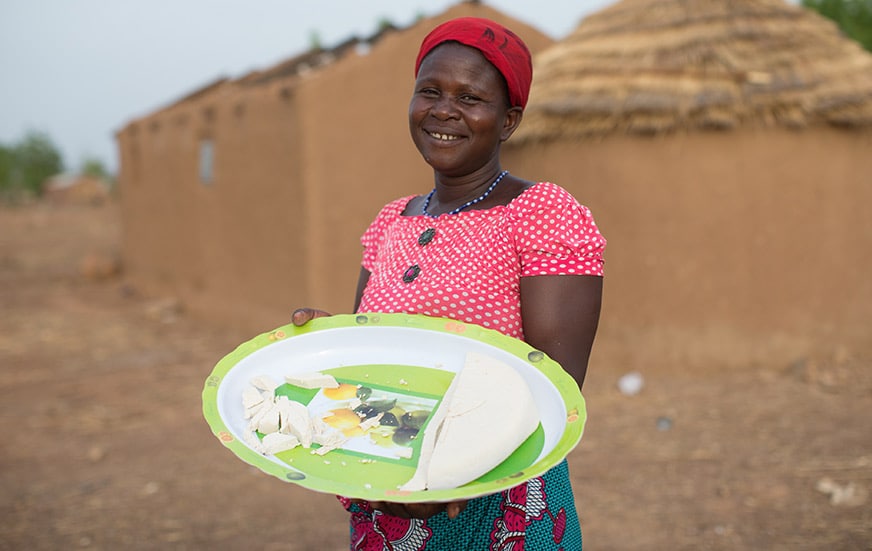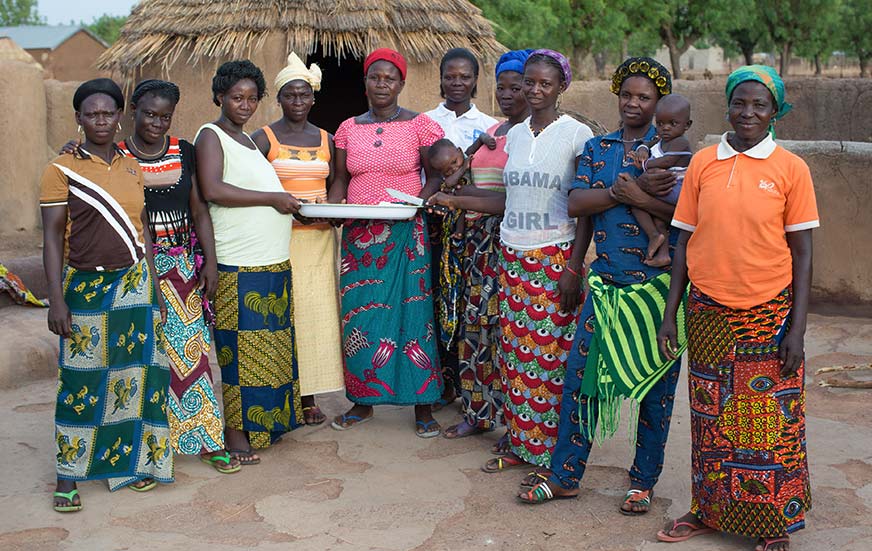The 13-member group meet once a month to process soya meal into a curd that is fried, bagged and sold locally. The women sell a kilo of ‘wagash’ for the equivalent of €6, and according to group member Sambiani Telate, the business is now earning each of their members €2 a month.
“It gives us our own money to spend on household goods and on our children”, she says. The soya fritters are highly nutritious, and a popular snack that parents buy for their children to take with them to school.
The Nano womens’ group both purchase soya beans from local farmers, and use their own harvests, and from the processed wagash earn more than three times the amount from the cooked curd than they would be selling raw soya bean in the market.
The membership received training in group organisation and management from Gorta-Self Help Africa’s local partners, while the wider farming community in Nano received improved seed so that they could grow soya bean alongside their traditional crops – maize and millet.
“Mothers like to buy the wagash as a lunch snack for their children. It has better nutrients than maize, so helps them to mix their diet a little,” Sambiane Tilate says.


